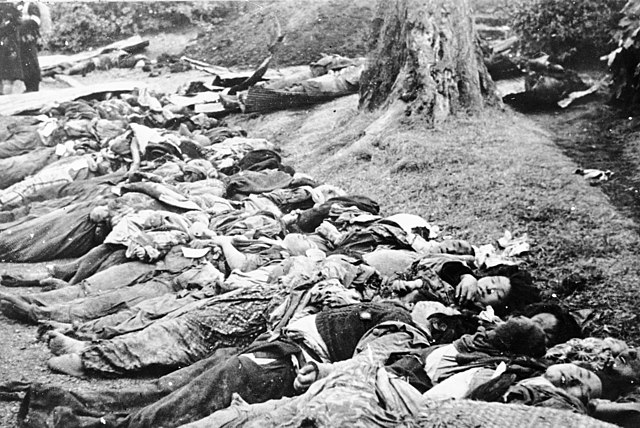Japan marked 80 years since the nuclear attack in Hiroshima on August 6. Attendees of the commemoration ceremony, including both the governor and mayor of Hiroshima, Japan’s Prime Minister Shigeru Ishiba, and representatives from 120 nations and territories, offered a silent prayer for victims at 8:15 a.m. in local time, which is when the U.S. dropped an atomic bomb in the city 80 years ago. The ceremony has its significance amid today’s severe geopolitical situation, such as the War in Ukraine and the possible invasion of Taiwan, the decline of nuclear disarmament efforts, and the dwindling population of hibakusha,” or those affected by the nuclear attack.
“Don’t repeat the catastrophe that happened in Hiroshima and Nagasaki. Leading the international community’s efforts toward a nuclear-free world, while adhering to the ‘three non-nuclear principles’ (nukes must not be possessed, made, or brought), is our mission as the only nation hit by nuclear bombs,” Ishiba said during the ceremony.
However, the 2024 Nobel Peace laureate Nihon Hidankyo, an organization representing A-bomb survivors, criticized the Japanese government’s moves as not enough. In a statement issued on Tuesday, the group noted that there are fewer than 100,000 hibakusha now, with an average age over 86 years old, and that nuclear risks are rising. “The current urgent task is to get the nuclear-armed countries that are turning their backs on us, and their leaders, to budge even an inch,” the statement read. Then, the group also condemned Japan’s unwillingness to join the Treaty on the Prohibition of Nuclear Weapons (TPNW), its military buildups, and Tokyo’s request for the U.S. nuclear support during the military simulation.
Ishiba’s messages for peace and denuclearization in the future are admirable. Nuclear proliferation and risks of conflicts between nuclear-armed countries, such as the India-Pakistan conflict in May 2025, are persistent, while the nuclear disarmament between the U.S. and Russia seems to ebb. Moreover, attacks against the mass population still happen in Gaza and Ukraine. However, actions speak louder than words. As the Nihon Hidankyo points out, Japan is reluctant to join the TPNW as an observer. This is partly because Japan is surrounded by three nuclear powers (Russia, China, and North Korea), and the U.S. nuclear umbrella serves as a deterrence. However, Tokyo should invest more in technologies that can replace nuclear power. A good example is a railgun, an electromagnetic device to launch projectiles at high speed. It could potentially contribute to intercepting hypersonic nuclear missiles in the future, and Japan is at the forefront of its development. Of course, diplomacy is also important. Japan should promote the 2022 “Hiroshima Action Plan” (HAP), which includes calls for nuclear transparency and sustaining momentum for nuclear disarmament.
The U.S. nuclear attack against Hiroshima has had severe and lasting effects on Japan. More than 140,000 people, mostly Japanese civilians, died by December 1945. Thousands of Koreans and dozens of American prisoners of war were among the victim. The use of the A-bomb was one of the crucial factors in ending the Second World War, but those who survived the nuclear attack have suffered from radioactive diseases and discrimination. On the other hand, Japan has relied on the U.S. nuclear umbrella since the Cold War. Even Tokyo considered the possibilities of nuclear arming in the 1960s after China’s first nuclear test in 1964. However, recent geopolitical developments, especially after the full-scale invasion of Ukraine by nuclear-armed Russia in 2022, have sparked a national debate over nuclear weapons, including nuclear sharing with the U.S. and even nuclear arming by itself.
Unfortunately, Japan still relies on U.S. nuclear deterrence in the short term. According to the local Kyodo News, Japan requested the U.S. nuclear support in response to China’s nuclear threats during the U.S.-Japan simulation about the possible Chinese invasion of Taiwan. Yet, Tokyo could reduce its reliance on nuclear weapons as a long-term security guarantee by investing in and developing cutting-edge technologies, such as the railgun and the “Golden Dome,” a proposed new missile defense system by U.S. President Donald J. Trump. On the diplomatic front, Japan should play a crucial role in the upcoming Non-Proliferation Treaty (NPT) review conference and emphasize the HAP in the G7 meeting. Through technology and diplomacy, Japan could propose a blueprint for a nuclear-free world.
